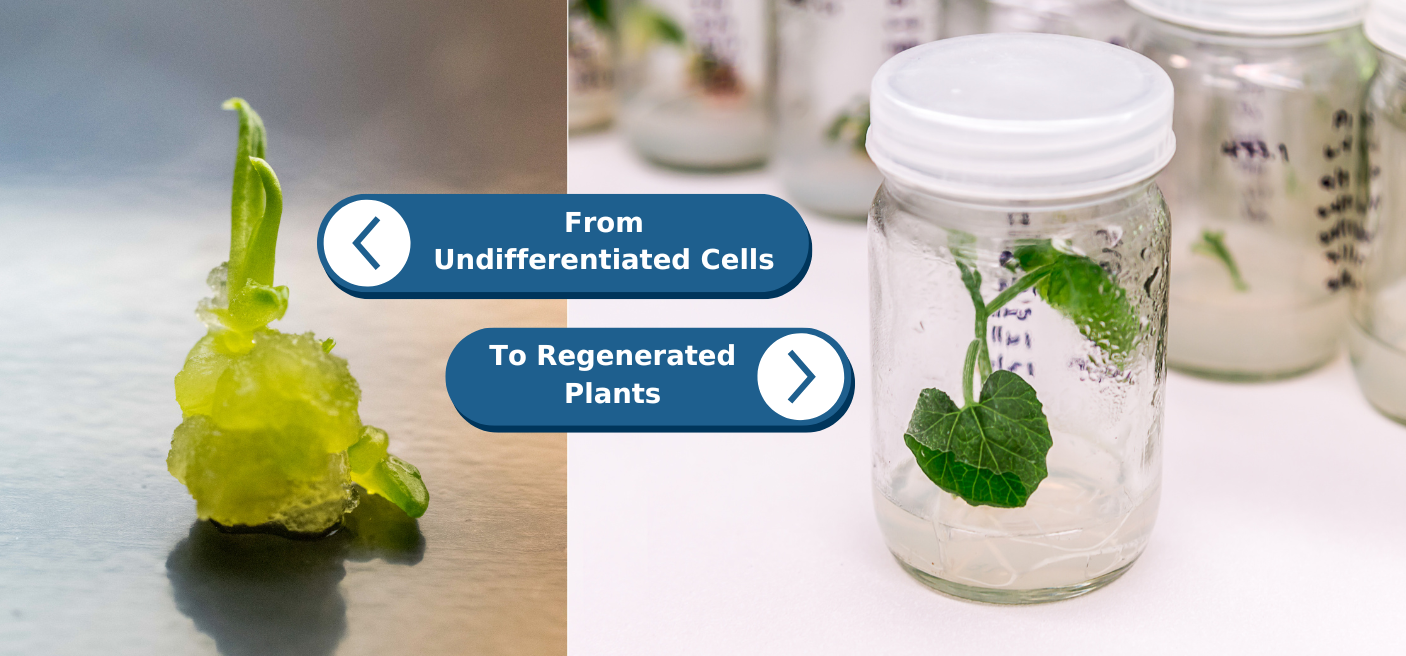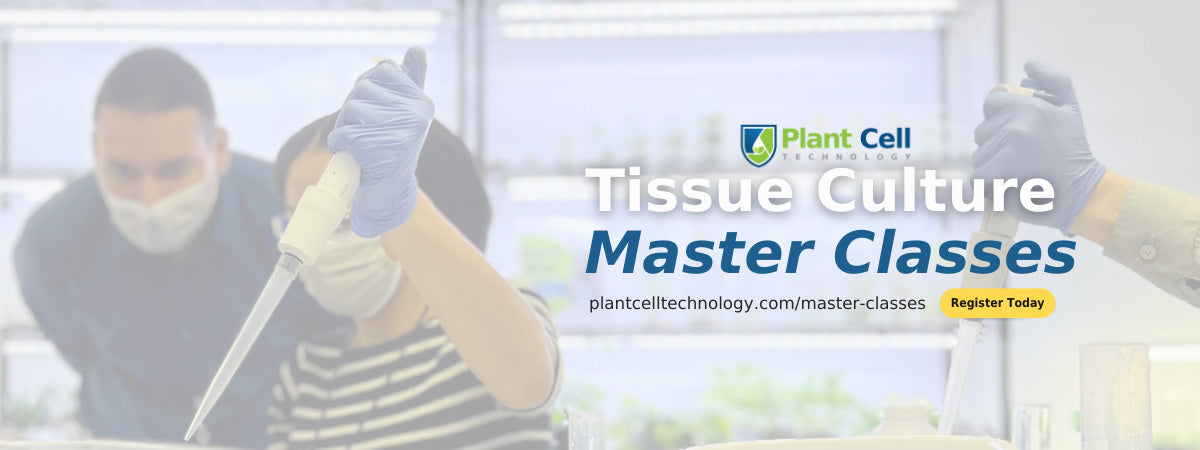
Pros and Cons of Synthetic Seeds

- Pros and Cons of Synthetic Seeds
- Introduction To Synthetic Seeds
- Tissue Types Used to Produce Artificial Seeds
- Advantages of synthetic seeds
- Disadvantages of synthetic seeds
- Applications of Synthetic seeds
- Synthetic Seeds Use In Cannabis Cultivation
- How Plant Cell Technology Help You Exploit The Synseed Technology In Your Plant Business?
- References
Introduction To Synthetic Seeds
Synthetic seeds are man-made or artificial seeds which include encapsulated somatic embryos, shoot buds, cell aggregates, or any other meristematic tissue. Synthetic seeds have the ability to form a whole plant in either in vitro or ex vitro conditions. These seeds are sown in the same way as conventional seeds and they enclose nutrients inside the encapsulation to ensure and promote proper development of the seeds. In the past, synthetic seeds were produced only by using somatic embryos that help some economic use in crop production. The application of synthetic seeds has widened the materials that are encapsulated for the formation of seeds.
The synthetic seeds are of two types based on the used technology, desiccated and hydrated seeds. The desiccated synthetic seeds are formed by desiccating somatic embryos after their encapsulation in polyethylene glycol. On the other hand, the hydrated synthetic seeds are sensitive to desiccation and are recalcitrant. These hydrated synthetic seeds are prepared by encapsulating somatic embryos in hydrogel capsules.
In the previous article, titled “an overview of synthetic seeds”, you have visualized an overall conceptual picture of synthetic seeds. What are they? How they are categorized? In this article, you will learn a list of advantages of synthetic seeds and limitations in their application.
Tissue Types Used to Produce Artificial Seeds
At the beginning of this article, you learned the different tissues that can be encapsulated to form synthetic seeds. But how should you choose the suitable one for your experiments? This section will answer the question.
1. Somatic embryos: These are the best when you want to follow clonal propagation. Normal seeds develop as a result of sexual recombination and so they produce genetically different plants. However, somatic embryos are produced from somatic or vegetative cells that help to produce genetically identical plants. Somatic embryos are also best when you want to bring any specific character in the plants by gene insertion (a genetic engineering process) into somatic cells. Also, they are extensively favored for micropropagation because they possess radical and plumule that gives rise to roots and shoots without any specific treatments.

Figure: The image shows synthetic seeds prepared by encapsulating somatic embryos of Brassica napus in calcium alginate.

Source: Kumar, P. P., & Loh, C. S. (2012). Plant tissue culture for biotechnology. Plant Biotechnology and Agriculture.
2. Axillary shoot buds and Apical shoot tips: These tissues do not possess root meristem so they need to be induced for root development after encapsulation.
3. Embryogenic tissues: These tissues are best when you want to proceed with clonal propagation and genetic transformation studies. But, their maintenance is labor-intensive and costly.
4. Protocorms: These are mainly used in the case of orchids. The protocorms are encapsulated in sodium alginate gel to form synthetic seeds.
Advantages of synthetic seeds
- They act as a channel to develop a whole new line of plants through biotechnological advances.
- They maintain the clonal nature of the resulting plants.
- They are easy to transport.
- There is the ease of handling while in storage.
- Synthetic seeds allow economical mass propagation of elite plant varieties.
- Synthetic seeds are cost-effective compared to traditional seeds.

Disadvantages of synthetic seeds
- Only a smaller number of seeds develop into a fully grown plant. This limits the value and application of synthetic seeds.
- The lack of dormancy and stress tolerance in somatic embryos limits the storage of synthetic seeds.
- The coating material used in the production of synthetic seeds makes the storage of seeds difficult. Some coatings material, used in encapsulation, dry down within a few hours of exposure to the ambient atmosphere.
- In many plant species, somatic embryos have been found to be sensitive to desiccation.
- The abnormally germinated somatic embryos can not be used for germination and conversion into normal plants.
Applications of Synthetic seeds
- To transport pathogen-free propagules.
- Male and female sterile plants can be propagated for hybrid seed production.
- They can be used for the multiplication of transgenic plants.
- Synthetic seeds are used in the multiplication of non-seed producing plants, ornamental hybrids, and polyploids.
- They can be used to propagate endangered plant species.
- The cryopreserved synthetic seeds can be used for germplasm preservation.
- Synthetic seeds can be used to maintain genetic uniformity and varieties of crops.
- The synthetic seeds technology can be used to produce improved food crop varieties and produce environmentally friendly plantations.
Synthetic seed production is an efficient technology whose application can be widened to serve several other demands. Some people add herbicide formulation while seeding encapsulation that provides extra protection to seeds from pests and diseases. Despite the above-mentioned extensive application, the use of synthetic seeds at a commercial scale is yet to be studied by scientists.
Synthetic Seeds Use In Cannabis Cultivation

Cannabis is a tricky plant to grow. that's why various approaches are tried for the production of plants at scale, such as hydroponics system, indoor cultivation, and tissue culture methods. However, when it comes to producing uniform and disease-free Cannabis plants, no technique can challenges of in vitro culturing approaches.
Synthetic seed is a type of tissue culture technique that can be effectively used in Cannabis cultivation space for commercial production. It serves as a foundation for generating certified clean plant material and conserving germplasm, ensuring the absence of pests and diseases. Storing synseeds at low temperatures aims to decrease the metabolic activity of enclosed propagules and extend the duration of storage.
How Plant Cell Technology Help You Exploit The Synseed Technology In Your Plant Business?
Tissue culture, including synthetic seed, has a major role to play in producing healthy plants and preserve elite varieties. However, the process is not that easy when you don’t have experience in it. Moreover, it will take months for you to create or develop your own procedure—which will require mixing different types and concentrations of chemicals and try different tissues to create synthetic seed for specific plants.
Imagine how much time and money you’ll be required to invest in it!
That’s why we have brought you our comprehensive “Cannabis Tissue Culture Masterclass”. It will be a 3-days class hosted at the Plant Cell Technology lab in Washington DC! The class will be conducted by one of expert instructors in the cannabis industry, and you don't want to miss it!
In this class, you won’t only learn how to produce synseeds and preserve genetics of your plant, but a range of other topics, including Pathogen remediation, sterilization techniques, Meristem dissection, and many more.
Here’s our complete curriculum.
This is a one of the most popular Master Class, for which booking has already been started. And, for one-on-experience with our tissue culture expert, only a limited number of seats are available.
So, if you are interested in giving a boost to your Cannabis business, then book your seats TODAY!
References
- Pond, S., & Cameron, S. (2017). Artificial Seeds. Encyclopedia of Applied Plant Sciences, 419–427. doi:10.1016/b978-0-12-394807-6.00227-6
- Kumar, P. P., & Loh, C. S. (2012). Plant tissue culture for biotechnology. Plant Biotechnology and Agriculture, 131–138. doi:10.1016/b978-0-12-381466-1.00009-2.
- Bhatia, S., & Bera, T. (2015). Somatic Embryogenesis and Organogenesis. Modern Applications of Plant Biotechnology in Pharmaceutical Sciences, 209–230. doi:10.1016/b978-0-12-802221-4.00006-6.
- https://www.agriquest.info/synthetic_seeds.php
- https://www.technologytimes.pk/2015/12/21/applications-advantages-of-artificial-seed.
Blog Categories
View by Level
Popular Blogs

Common Mistakes in Plant Tissue Culture and How to Fix Them
Introduction Tissue culture offers a fascinating way to regenerate plants, unlocking immense potential for growth and sustainability However, even the...
Read More
Callus Culture: From Undifferentiated Cells to Regenerated Plants
Introduction Plant tissue culture holds immense potential in horticulture and agriculture, offering transformative applications. While many recognize its benefits, fewer...
Read More








Join the conversation
Your email address will not be published. Required fields are marked